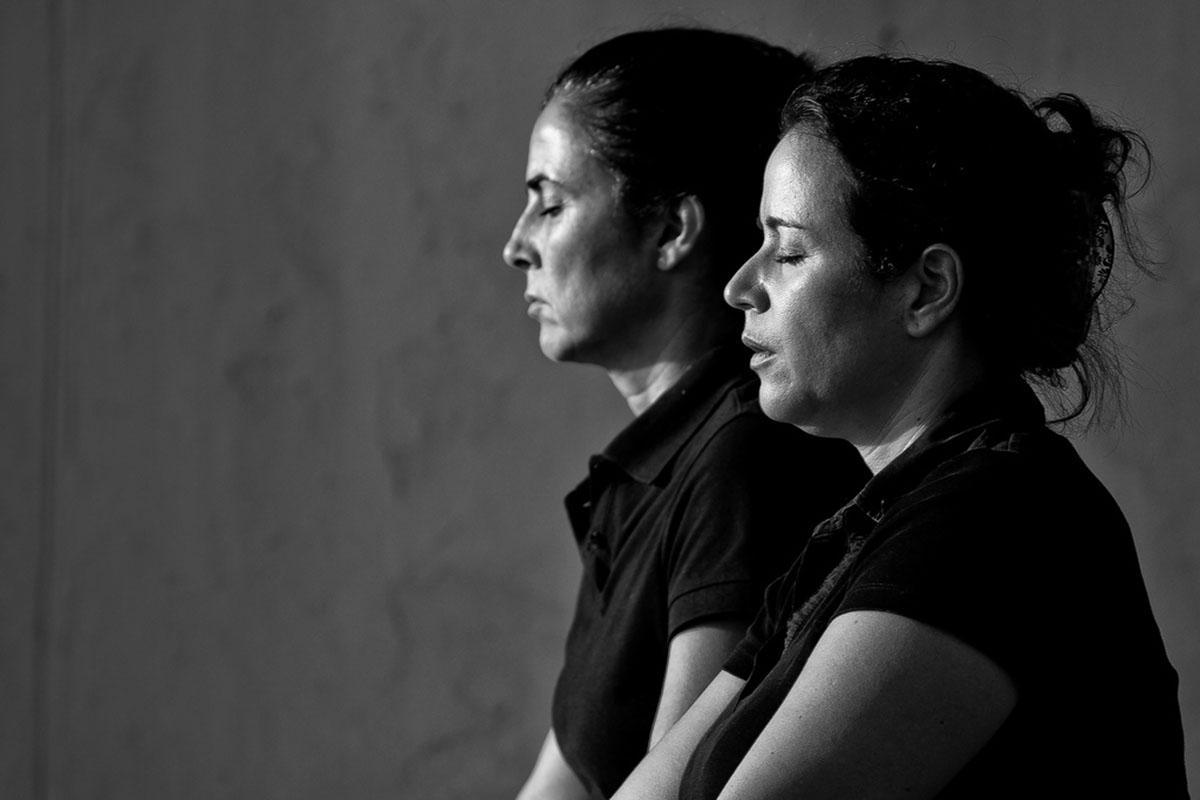Table of Contents
Take care of your back
Most carers suffer with back pain at some point in their lives. Caring for someone can frequently involve helping them dress, use the toilet and get in and out of bed. These very physical activities can put a lot of strain on your back.
To avoid unnecessarily straining your back, try these:
- Ask your nurse or doctor for advice on the safest way to assist your loved one.
- If your carers' organisation runs training opportunities to learn how to safely lift and assist, take them.
- If you live in the UK, ask your adult social care department for an assessment of care and support needs. This may include raised toilet seats and grab-rails so your loved one can get off the toilet seat and out of bed without help. This would reduce the strain on your back. In the USA, contact your local Area Agency on Aging, who could help you find home modification services in your area.

Further practical steps to keep your back strong include:
- Ensure your posture is good. Poor posture puts additional strain on the tendons of your back
- Take regular exercise. Yoga, swimming, pilates and cycling are all great methods for strengthening your core and back muscles. As a bonus, they're all great stress-relievers.
Finally, if you injure your back, go straight to the doctor. Don't wait. Most often, pain could be a sign of a muscle strain, which requires no treatment besides analgesia, but which can be very painful and take a long time to treat. However, sudden back pain can be also a symptom of a more serious slipped disc.
Always check with a doctor.
Look after your health
As a carer, keeping yourself generally healthy is one of the most important things you can do. Here, we look at the seven simple steps to stay healthy:
- Get your flu jab every winter
- Eat a healthy balanced diet with lots of whole-grain carbohydrates (rice, pasta, bread); fruit, vegetables, oily fish (salmon, sardines), and lean meat.
- Take regular exercise: whether walking or a dance class, regular exercise will boost your mood, keep your heart healthy, and give your health a kick. Just choose something fun.
- See your doctor if you don't feel well. Going for martyrdom and struggling on for weeks when you're unwell helps nobody.
- Hobbies, interests and a social life are necessary for your mental and physical health. Don't ignore them.
- Attend all scheduled health screenings
- Practice relaxation techniques: learn mindful meditation, yoga, and don't be afraid to take long soothing soaks in the bath. Learning to relax will prevent stress. Do what works for you: some people find reading, gardening or colouring books therapeutic.
READ Escape The Daily Drag And Boost Your Health: Why You Really Do Need That Vacation
Take a break
One of the most important ways you can look after yourself is to take a break. This is especially important if you don't work and see the person you care for 24 hours a day.
You must make time for yourself, and take breaks on a daily basis.
Ideas for short breaks:
- Do a crossword
- Have a soothing cup of tea
- Watch a 30 minute TV programme
- Read a chapter of a novel
- Listen to some favourite music
- Read a newspaper
- Chat to a friend on the phone
Carers often feel guilty when they take more than a few minutes to themselves. What they don't realise is that it's not selfish to have a break, it's vital.
Granting yourself that time is essential to recharge your batteries and prevent you becoming stressed, depressed, run-down and unwell. If you don't take a break, you will become overwhelmed. In time, ill-health and negative feelings will wear you down and have an impact on both you and the person you care for.
- Consider respite care. In the UK, respite care is available through your local authority (in the form of day centres, temporary residential care, and in-home carers). In the US, day and longer-term respite care can be found through your local Area Agency on Aging. With respite care, you could schedule regular time to take a break in the following ways:
- Take part in a hobby that you enjoy: an art class, learn to play an instrument, a drama society, a book club, or a writer's circle - so many times, hobbies are the first things to go when we become carers
- Schedule a time to meet a friend: have a drink, enjoy lunch, see a movie, go shopping - we can allow friendships to wither. Keeping friendships alive will stop you feeling isolated
- Book a holiday: while your loved one is being well cared-for, take a short holiday and go somewhere you always wanted to go. A few days or a week will make all the difference to your health, helping you return refreshed.
By following these six practical steps, you can be better equipped to care for your loved-one, and more able to face the challenges that come with being a full-time carer, while improving your own quality of life.
Remember carers: having a self isn't selfish.
You have to be fit, happy and fulfilled so you can give to others.
Sometimes, we all need someone to care.
- www.alzheimers.org.uk/site/scripts/documents_info.php?documentID=119
- www.alzheimers.gov/caregiver_resources.html
- www.n4a.org/
- www.carersuk.org/help-and-advice/health/looking-after-your-health/caring-for-your-back
- www.carersuk.org/help-and-advice/health/looking-after-your-health
- carers.org/article/taking-care-yourself
- www.dol.gov/general/topic/workhours/flexibleschedules
- www.mayoclinic.org/healthy-lifestyle/adult-health/in-depth/sleep/art-20048379
- www.nidirect.gov.uk/articles/looking-after-yourself-carer
- static.carers.org/files/in-poor-health-carers-uk-report-1674.pdf
- www.helpguide.org/articles/caregiving/respite-care.htm
- www.parkinsons.org.uk/content/carers-looking-after-yourself
- Photo courtesy of hendry: www.flickr.com/photos/hendry/2392073292/
- Photo courtesy of hendry: www.flickr.com/photos/hendry/2392073292/
- Photo courtesy of hernanpc: www.flickr.com/photos/hernanpc/8024393669/


Your thoughts on this